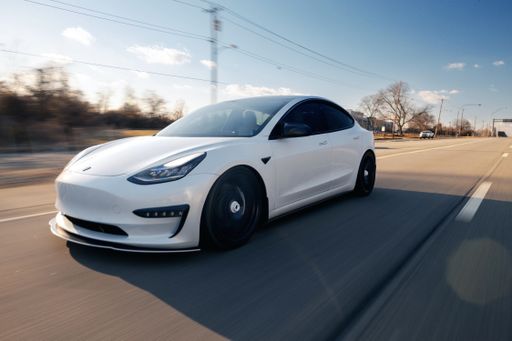Biden Admin Doubling Down on Gas Car Crackdown, Say Advocates
The Biden administration is reportedly finalizing gas-powered car tailpipe emissions standards that consumer advocates and energy industry groups have criticized as a de facto electric vehicle mandate.

Pushing for Electric Vehicles
The Biden administration is expected to soon finalize gas-powered car tailpipe emissions standards that have been dubbed a 'de facto electric vehicle mandate' by consumer advocates and energy industry groups. The proposed standards aim to ensure that 67% of new car sales by 2032 are electric. The administration is reportedly doubling down on this goal while relaxing earlier targets.
The American Fuel & Petrochemical Manufacturers released a statement in response to the reports, saying that President Biden has been clear since 2020 about his intention to use his agencies to eliminate sales of new gas cars. They argue that slowing down the implementation speed doesn't change the end goal, which is banning new gas-powered cars. The group also states that lowering the pace of the forced transition would not benefit consumers or protect the country's energy security.
Reports of Delayed Implementation
According to the New York Times and the Washington Post, the Biden administration's plan includes delaying the more aggressive federal tailpipe regulations and targets for electric vehicle (EV) sales until 2030. This delay is reportedly due to concerns expressed by auto union leaders. Automakers would then have a shorter span of time to comply with the standards.
While industry leaders express concerns over mass electric vehicle proliferation, which has seen declining sales and increasing prices, critics argue that the Biden administration's attempt to force automakers to produce only EVs is not aligned with market demand. Some believe that EVs are not yet ready for widespread adoption, citing the lack of affordability and reliability of electric vehicles compared to conventional cars.
Controversy and Opposition
The push for EVs has faced considerable pressure from industry and Republican lawmakers. They argue that the proposed standards would benefit China and result in higher prices for Americans. In May, over 150 House Republicans wrote to EPA Administrator Michael Regan, calling the proposals an effort by the Biden administration to commandeer America's transportation sector.
According to the Alliance for Automotive Innovation, 9.3% of total car purchases in the U.S. in 2023 were electric or plug-in hybrid, showing a slight increase from the previous year. However, EVs remain significantly more expensive than gas-powered cars, even with subsidies factored in. The average cost of an EV is approximately $52,500, while a subcompact gas-powered car costs around $24,000.


